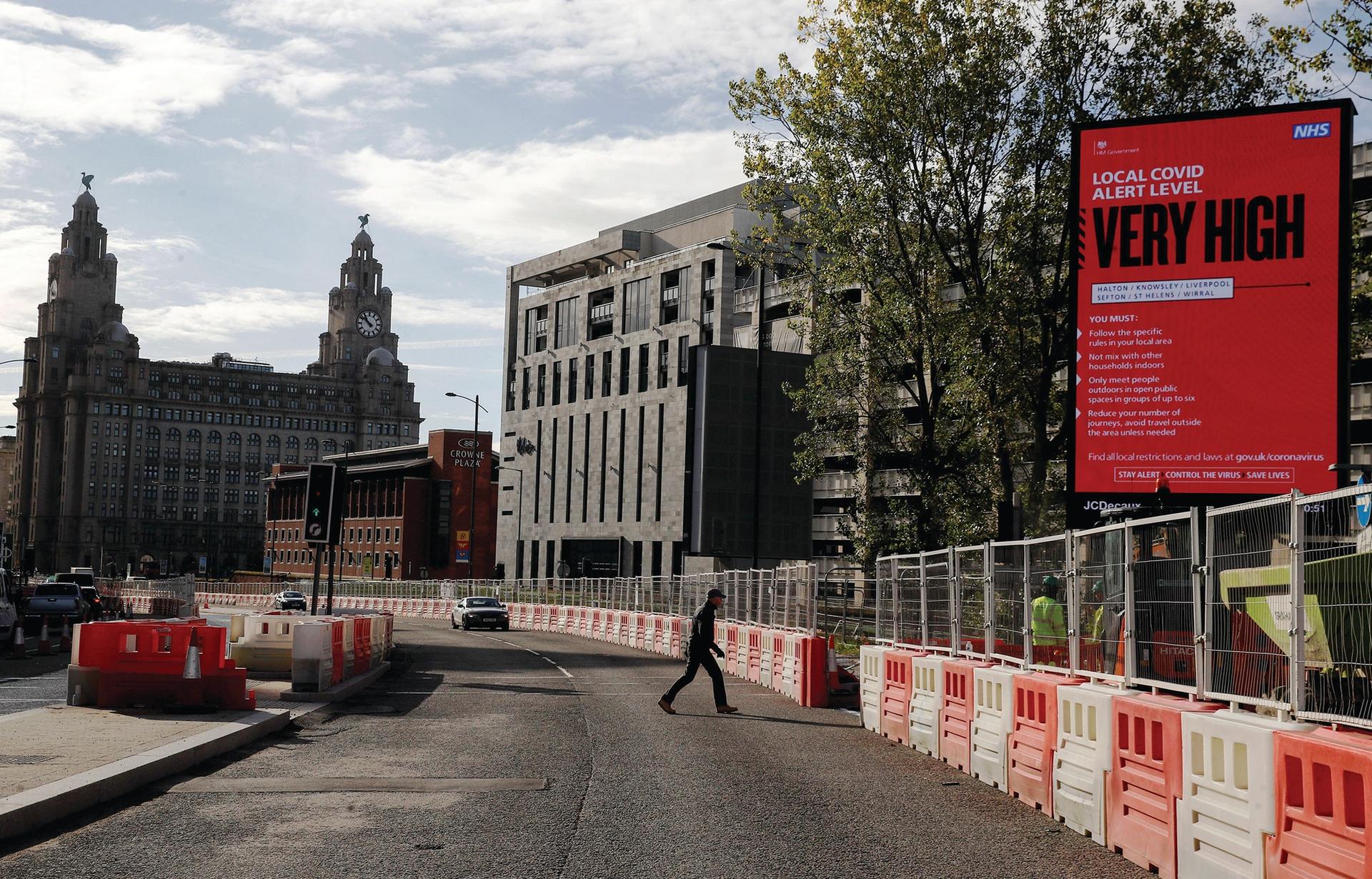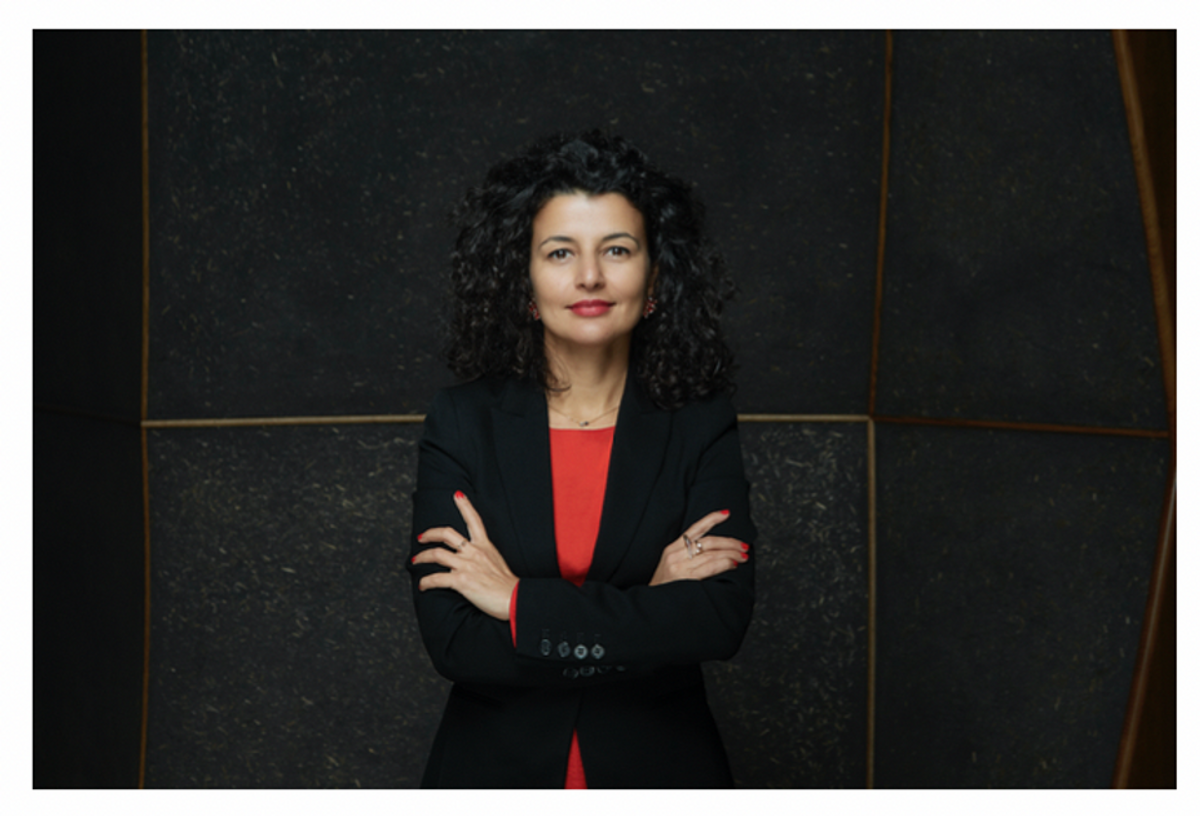The director of the Liverpool Biennial, Fatos Üstek, has resigned after 17 months in the role following a dispute with the organisation’s board. Two trustees, the artist Fiona Banner and the art and intellectual property lawyer Jon Sharples, have also stepped down to protest against the board’s treatment of Üstek.
Sources in Liverpool close to the biennial say that the relationship between Üstek and her board deteriorated when the organisation was forced to close its offices during the first national coronavirus (Covid-19) lockdown, which began on 23 March. Following consultations with her staff, Üstek furloughed 13 employees.
Üstek was not properly supported by her board, sources say, and was not given the opportunity to respond to its concerns, which included Üstek’s ability to navigate the financial challenges due to the pandemic. Instead she was expected to face these without proper backing and with no clear guidelines (the organisation’s director of development, Sarah den Dikken, stepped down in March 2020; she has not yet been replaced).

Liverpool has been hit hard by the coronavirus; the city’s biennial had to close its offices in the first national lockdown and put 13 employees on furlough Phil Noble/Reuters/Alamy Stock Photo
In September, the biennial chair, Kathleen Soriano, reportedly presented trustees with a letter, written by a member of staff, which outlined concerns about Üstek’s handling of the pandemic. Üstek was not shown the letter and was not permitted to defend herself against the accusations.
“Governance issues with a lack of clarity on roles and responsibilities, and processes not being followed, taken together made my role untenable,” Üstek said in a statement sent to The Art Newspaper.
“I am sad that I cannot continue to lead the amazing biennial team in delivering the coming and future editions.”
Jon Sharples confirmed that he had resigned from the biennial board “because I could not support the path it had taken in its treatment of Fatos Üstek”, while Fiona Banner said her own resignation from the board “came down to ethics; it became impossible for me to stay”. Both declined to comment further.
The biennial declined to answer questions about its treatment of Üstek. Instead, in a statement the board said: “We are all deeply grateful for Fatos’s contributions to the biennial. We would like to thank her for her work during these last difficult months, facing all the challenges of the Covid-19 pandemic with energy and fortitude.”
Challenging times
The case highlights the increased challenges faced by boards during the pandemic. Museums and many arts organisations are registered charities, which are governed by unpaid trustees. “The system just about works in good times—notwithstanding the issues it creates around a lack of board diversity—but is a disaster in times of crisis when there is time-consuming work to be done,” as trustees often have challenging full-time jobs and sometimes serve on the boards of multiple organisations, says one source who asked to remain anonymous.
“Trustees are there to support the professional management of the organisation they govern and to assist in fundraising: going out and finding patrons and maintaining those patron relationships. But there are still some places, not with which I am or have been associated, which don’t really know their arse from their elbows,” says Keir McGuinness, a commercial lawyer and management consultant who is currently the chair of Art360 Foundation, which helps artists and estates to manage and maintain their legacies and archive, and who previously served as the chair of the Whitechapel Gallery, among other appointments.
The ability to devote enough time to the organisations they serve is critical, McGuinness says. “You can’t just turn up and read the briefing papers the same day you turn up for the board meeting. You need to engage properly with the institution.”
“Trustees should not make the critical mistake of thinking that they are the organisation. They are not,” he adds.
Another factor is that “the expectations placed on directors of most small, publicly-funded art organisations are unsustainable. They are expected to be the creative director, the finance director, the HR director, the building director and so on. They have to be everything and of course that’s impossible. How can one person have all those required skills and experience?” asks Gilane Tawadros, the chief executive of Dacs, an organisation that collects and distributes royalties to artists and their estates.
“What you need are trustees who have a sense that they and the chair and the director are all working for the same strategic goals and purpose. If you don’t have that, things can unravel very quickly,” said Tawadros, adding that Dacs, a not-for-profit organisation which pays its trustees a small amount, had faced significant challenges during lockdown. “Our board really did step up to the plate. They absolutely recognised the critical and exceptional nature of the situation and were prepared to devote so much more time to us than usual.”
Another problem with volunteer boards is the lack of diversity the system engenders. It is mostly older, white people who have the financial resources to work for no money. This leaves institutions “completely ill-equipped to deal with the challenges of the current moment and the demands for systemic change”, Tawadros says.
Samantha Lackey, the head of collection and exhibitions at the Whitworth Art Gallery in Manchester, has been appointed interim director of the Liverpool Biennial. The next edition of the show will take place in 2021.
UPDATE: The Liverpool Biennial declined to answer our questions before publication. It has now sent us this statement:
Fatoş Üstek stepped down as Director of the Liverpool Biennial on 9 October 2020, after 17 months in post. This followed a breakdown in the relationship between her and the Board of the Liverpool Biennial, which was compounded by concerns around her management of governance, finances and staffing, over an extended period of time. The Board also received a letter from the majority of the Biennial staff, raising specific issues about her management style and professional conduct.
Fatoş Üstek was given the opportunity to address the concerns, which she did not accept. The Liverpool Biennial Board, represented by a total of 13 Trustees, made two offers of a settlement agreement, which she declined before submitting her resignation.
Liverpool Biennial has subsequently appointed Dr Samantha Lackey to the role of Interim Director whilst the Board seeks a new Director early in the New Year.
The Biennial, curated by Manuela Moscoso, will take place 20 March – 6 June 2021. Invited to curate the Liverpool Biennial in July 2018, Manuela Moscoso has been solely responsible for the creative concept and theme of the next Biennial, as well as the selection of the LB21 artists.


